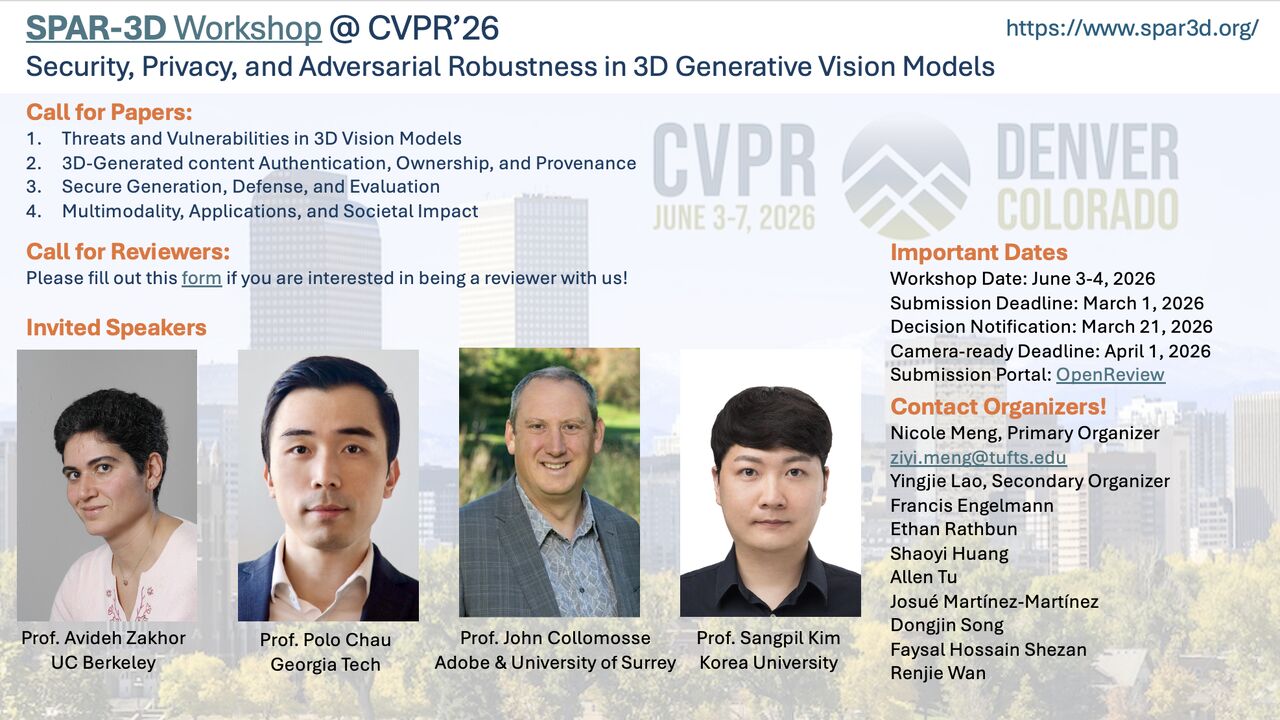About Me
I am a PhD student in Computer Science at the University of Maryland, College Park (UMD), advised by Professor Tom Goldstein. My research spans deep learning, computer vision, and graphics, with emphasis on 3D scene reconstruction, multimodal biometric recognition, and generative priors for robust vision systems. I have published in top machine learning conferences, contributing methods in compression and explainability that enable large-scale recognition and 3D reconstruction in real-world settings. In addition to my academic work, I collaborate with both academic and industry partners on problems spanning vision, language, and generative modeling. I completed my BS/MS in Computer Science at UMD in 2024.
I was a Computer Vision Research Intern at Systems & Technology Research (STR), focusing on multimodal biometric recognition, and a Peer Research Mentor in the FIRE: Capital One Machine Learning program at UMD, where I mentored over 80 undergraduates in their first research experiences. These roles deepened my interest in building machine learning systems that are both efficient and trustworthy. A recurring theme in my work is designing methods that not only achieve high accuracy, but also scale effectively and provide interpretable signals for decision making. My goal is to advance AI that can be deployed in real-world applications, ensuring systems that are safe, reliable, and beneficial to society.
News
🏔️ The SPAR-3D Security, Privacy, and Adversarial Robustness in 3D Generative Vision Models Workshop at CVPR 2026 is now calling for papers and reviewers! ☀️
- December 2025: SPAR-3D accepted as a CVPR 2026 Workshop! 🏔️
- December 2025: TransFIRA accepted to IEEE FG 2026! ⛩️
- December 2025: I joined Rednote (小红书)! 分享科研、PhD life 和假中国人日常。🐼
- December 2025: Released our SplatSuRe paper and code. 📐
- November 2025: Updated our SpeeDe3DGS paper and code. 🚀
- June 2025: Thank you for visiting PUP 3D-GS and Speedy-Splat at CVPR 2025! 🎸
Research Highlights BibTeX References
* denotes equal contribution.
Experience
|
University of
Maryland Institute of Advanced Computer Studies
Graduate Research Assistant: August 2023 — Present Tom Lab WEBSITE LAB
|
|
Systems & Technology
Research
Computer Vision Research Intern: June 2022 — January 2026 Video and Image Understanding Group WEBSITE REFERRAL LINK
|
|
University of
Maryland Department of Computer Science
Undergraduate Researcher: January 2021 — December 2022 WEBSITE |
|
The First-Year
Innovation and Research Experience
Peer Research Mentor: January 2021 — December 2022 Capital One Machine Learning WEBSITE LAB GITHUB |


